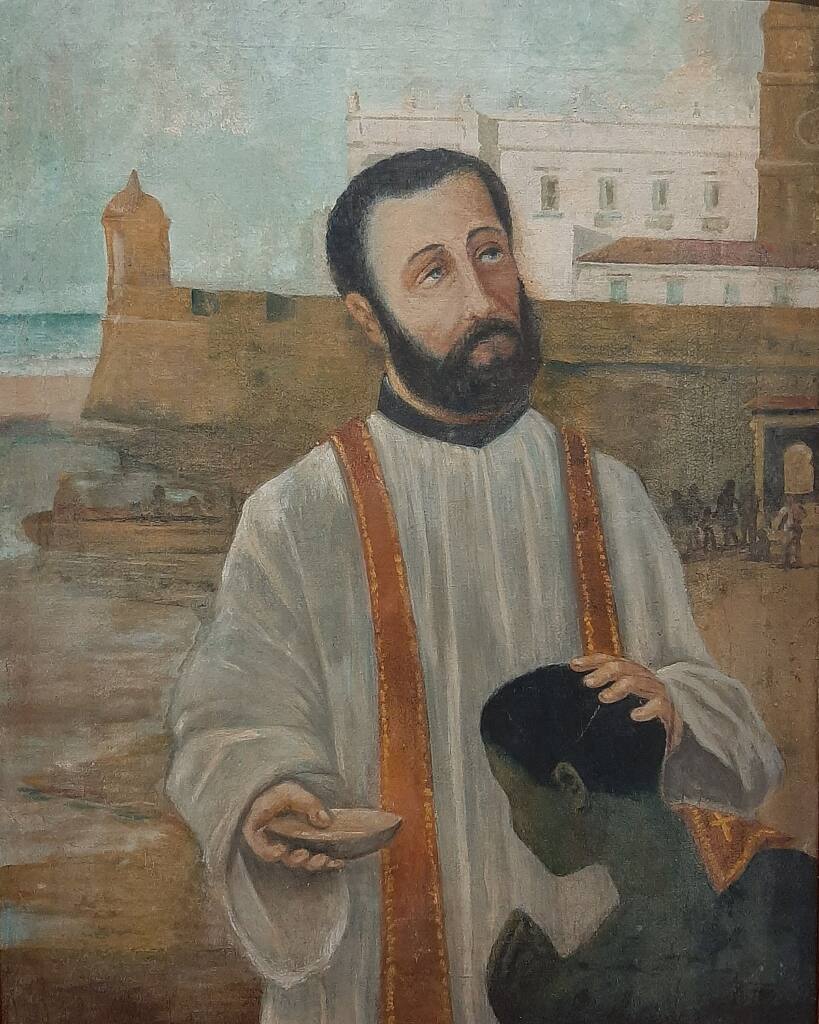WelCom September 2020
Patron saint of slaves, Colombia, seafarers, race relations, and missionaries to Africa

Image: Wikimedia Commons
St Peter Claver, Spanish San Pedro Claver, was born 1581, Verdú, Spain, and died 1654, Cartagena, Colombia. A Jesuit missionary to South America, he dedicated his life to the aid of enslaved Africans. He was canonised 1888 and his feast day is September 9.
Peter was born into a devout Catholic and prosperous farming family in the Catalan village of Verdú, near Barcelona. He was born 70 years after King Ferdinand of Spain set the colonial slavery culture into motion by authorising the purchase of 250 African slaves in Lisbon, Portugal, for his territories in New Spain.
As a student at the University of Barcelona, Peter wrote these words in the notebook, which he kept throughout his life: ‘I must dedicate myself to the service of God until death, on the understanding that I am like a slave.’
Peter entered the Society of Jesus in 1602 and eight years later after volunteering for the Spanish colonies, he was sent to the port city of Cartagena in 1610. Required to spend six years studying theology before being ordained a priest in 1616, he lived in Jesuit houses at Tunja and Bogotá. During those preparatory years, he was deeply disturbed by the harsh treatment and living conditions of the slaves who were brought from Africa.
Cartagena was a slave-trading hub, and South America’s chief slave market. Some 10,000 slaves poured into the port yearly, crossing the Atlantic from West Africa under foul conditions where an estimated one-third died in transit. Although the slave trade was condemned by Pope Paul III and Urban VIII had issued a papal decree prohibiting slavery, (later called ‘supreme villainy’ by Pope Pius IX), the lucrative business continued to flourish.
The miserable conditions of enslaved people aboard ships and in the pens of Cartagena, caused Peter to declare himself ‘the slave of the Negroes forever’; he dedicated the rest of his life to alleviating their suffering. Accompanied by interpreters and carrying food and medicines, he boarded every incoming slave ship and visited the pens, where he nursed the sick, comforted the distraught and terrified captives, and taught religion. Despite strong official opposition, Peter persevered for 38 years, baptising an estimated 300,000 enslaved individuals. He also visited them on the local plantations to encourage their faith and to exhort their masters to treat them humanely; during these visits he often refused the hospitality of the plantation owners and instead stayed in the slave quarters.
Peter Claver was canonised by Pope Leo XIII, who in 1896 proclaimed him patron of all Roman Catholic missions to African peoples. The Congress of the Republic of Colombia declared September 9 as the Human Rights National Day in his honour.